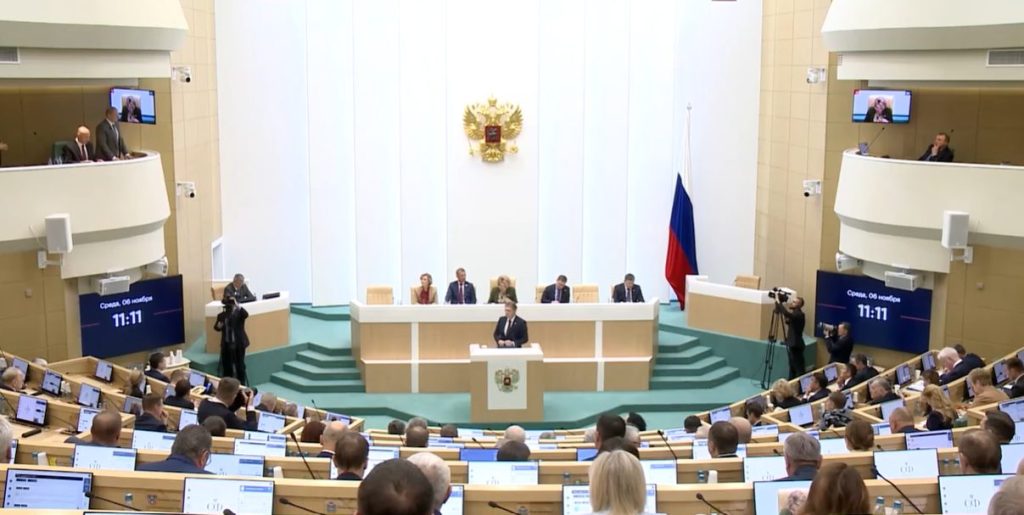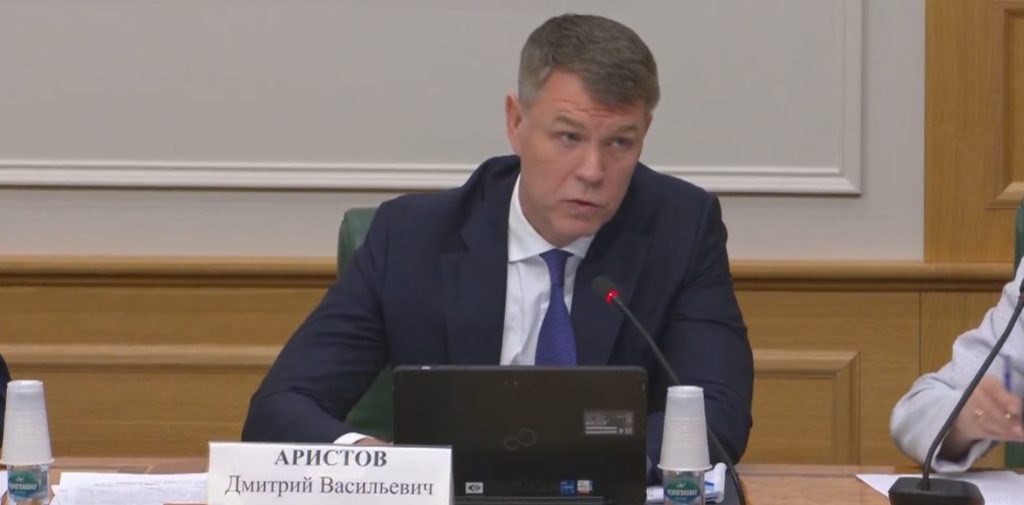Russian authorities have announced the introduction of innovative approaches aimed at converting seized Bitcoin (BTC) from criminal cases into liquid assets for the Treasury. This disclosure was made by Dmitry Aristov, the head of the Federal Bailiff Service (FSSP), who characterized Bitcoin as a “problematic asset” in a video shared on the Federation Council’s RuTube account.
Aristov presented his comments during a session of the Federation Council Committee on Constitutional Legislation and State Building, which serves as the upper house of the Russian parliament.
The FSSP is currently collaborating with “other relevant parties” to establish mechanisms that will enable the conversion of Bitcoin into government revenue. Aristov indicated that the FSSP could draw from legal precedents established during a notable criminal case to inform their strategies.
According to him, these precedents have facilitated the seizure of Bitcoin and potentially other cryptocurrencies. He also mentioned that law enforcement agencies are actively seeking solutions for the sale of confiscated cryptocurrencies.
Aristov’s remarks came in response to inquiries from a senator regarding the service’s protocols for cryptocurrency confiscation. He reiterated the existence of a legal precedent based on a criminal investigation that successfully led to the confiscation of Bitcoin tokens.
However, he emphasized the need for lawmakers to take decisive action, stating that a comprehensive strategy regarding the confiscation of crypto assets had yet to be concretely established. He suggested that any overarching solution would likely depend on the passage of legislation defining the legal status of Bitcoin and similar digital currencies in Russia.

Regulatory Gridlock on Cryptocurrency
Following years of stasis due to conflicting regulatory views, Russia enacted two pivotal cryptocurrency laws last year. One law officially recognized crypto mining as a legitimate business activity, while another permitted Russian firms to utilize crypto for payments in international trade within a framework established by the Central Bank.
Nonetheless, there is widespread consensus among critics and prominent lawmakers that additional reforms are essential. A previous law still prohibits the use of cryptocurrencies as payment methods within Russia’s borders.
Recently, the Central Bank approved a proposal allowing qualified investors to engage in cryptocurrency trading within its sandbox; however, it advocates for stringent measures, including a complete prohibition on crypto exchanges operating outside this framework and restrictions on retail and corporate investments in cryptocurrencies.
This divide within the government complicates efforts to clarify the regulatory environment that the FSSP is eager to see established, as various ministries and industrial mining sectors favor more regulatory measures instead of outright bans akin to those in China.
The UK classified Russia under the highest tier of its new Foreign Influence Registration Scheme, requiring Russian state members in the UK to disclose their activities or face legal repercussions. https://t.co/sFevGUE3D3
— Bloomberg (@business) April 1, 2025
Legal Precedents and the Tambiev Case
Media reports from RBC indicated that Aristov may have referenced the case of Marat Tambiev, a former investigator with the Russian Investigative Committee. Tambiev was convicted last year for accepting Bitcoin bribes from an international fraud network and is currently serving a 16-year prison sentence, during which bailiffs confiscated 1,032 BTC.
In January, the Russian Treasury announced it had initiated the transfer of these confiscated funds to state accounts and planned to sell approximately $10 million worth of seized Bitcoins.
Tambiev was found to have accepted BTC from members of the Infraud Organization hacker group in exchange for manipulating a criminal investigation’s trajectory.
Recent discussions among Moscow officials revealed ongoing efforts to draft a bill that would classify crypto assets as property within the context of criminal proceedings. The government is currently reviewing this proposal, while the Civic Chamber has suggested creating a state-run fund for confiscated digital assets, with the intent of using proceeds from sales to finance social initiatives.
The post Russian Bailiffs Can Now Turn Criminals’ Bitcoin Into State Revenue appeared first on Cryptonews.


























